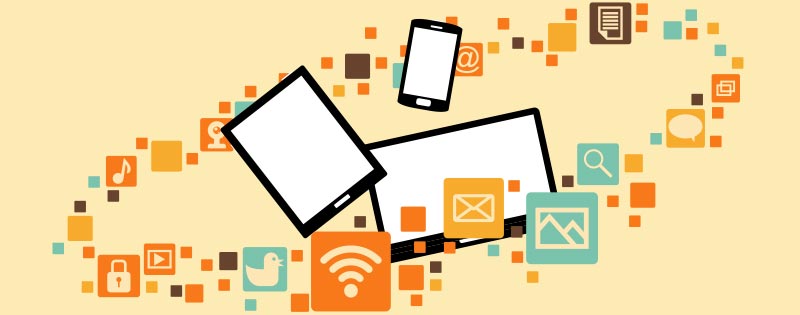Streaming has become the go-to method for consuming entertainment, but a streaming service is only as good as the internet service that supports it. Without a reliable and speedy internet connection, you won’t be able to enjoy services such as Netflix, Hulu, Amazon Prime TV, Sling, and YouTube TV. Not all internet connections are created equal: Some ways of connecting to the web are faster — and, therefore, better for streaming — than others. Let’s talk about your best internet service options for streaming music and video.
Speed Requirements
The most important factor for uninterrupted high-quality streaming is fast speeds and plenty of data allowance. But how much speed do you actually need?
According to YouTube, you can get by with just 500 Kbps. That technically may be true, but our experts are skeptical that you’ll be happy with your video-streaming performance at that speed. Speaking from experience, any speed less than 12 Mbps will result in reduced video quality and buffering or downgraded quality at times.
The problem with most speed recommendations for streaming services is they do not take into account that you will connect more than one device to your internet connection. In other words, you’ll share your internet speed among your mobile phone, laptop, desktop computer, TV, Apple TV, Amazon Fire Stick, tablet, and smart home devices. That means if you have 5 Mbps shared among five or 10 active devices, your effective internet speed will not meet the minimum requirements for streaming. More importantly, you’ll have a hard time doing anything online.
If 12 Mbps is enough for basic streaming, 25 Mbps or more is even better. With 25 Mbps, you’ll have twice the amount we feel is the actual minimum required for streaming, which allows for uninterrupted streaming on two or more devices. We consider 25 Mbps the minimum for more demanding types of streaming, such as live TV streaming and high-definition video.
What Are the Best Internet Connection Types for Streaming?
Download speed is the most important thing to consider when shopping for internet service you plan to use to stream video. Download speed has a relationship with connection type, so it’s a good idea to understand your connection options too.
The Best Internet Connection Type for Streaming: Fiber
A fiber internet connection stands out as the optimal choice for streaming video with services like Netflix due to its unmatched speed, reliability, and consistency. Unlike traditional copper-based connections, fiber-optic cables transmit data using light signals, resulting in significantly faster speeds and minimal latency (lag). That means a smoother streaming experience with less buffering and crystal-clear video quality, even during peak usage times.
Fiber internet has “symmetrical” upload and download speeds, which means upload speeds are just as quick as download speeds. (That’s not typical of other connection types, which usually have relatively slow upload speeds.) Does that matter for streaming? The short answer is, not really. It’s more relevant with video chatting and other activities that involve your computer sending data, rather than receiving it.
Fiber internet is the clear-cut best choice for streaming, but the bad news is that fiber connections are not available everywhere. Use the ZIP code check on InMyArea.com’s homepage to see the fastest connection type in your area.
Your Second-Best Option: Cable
Cable internet remains a popular choice for streaming video with services like Netflix, offering widespread availability and competitive speeds. It’s not as fast as a fiber optic connection, but cable internet still provides ample bandwidth to support high-definition streaming on multiple devices simultaneously. Cable internet uses coaxial cables to deliver internet signals, offering reliable connectivity and consistent performance in most areas.
Cable internet speeds may vary depending on factors such as network congestion and distance from the provider’s infrastructure, but it generally delivers sufficient bandwidth for a smooth streaming experience. With its widespread availability and reliable performance, cable internet serves as a dependable option for streaming Netflix and other video content, catering to the needs of many households seeking a balance among speed, affordability, and reliability.
In short: A cable connection should be more than enough for your streaming needs, as long as you get an internet plan that’s appropriate for your data needs.

Your Third-Best Option: DSL
There have been some improvements in DSL service, bumping the theoretical speeds to just under 100 Mbps. In reality, however, you won’t get that much because of the physical infrastructure used to provide service.
DSL is transmitted using copper phone lines, and the signal quality decreases over distance. The farther away you are from the phone company’s signal source, the worse your speed will be. The average streaming rate for DSL is about the same rate you'd need to stream Netflix without getting frustrated — around 3 Mbps once connected to Netflix.
Its performance pales in comparison to that of cable or fiber, but DSL should offer enough internet speed to get by when streaming.
Your Best Wireless Option: Fixed Wireless Internet
According to Netflix, fixed wireless internet connections are better at streaming than satellite internet connections. You will need to keep an eye on your data allowances, and you won’t be able to stream freely all day, every day.
Our InMyArea.com experts don’t recommend dial-up connections for use with Netflix and other streaming services. If you live in an area where dial-up is your only wired internet option, you may want to switch to a fixed wireless plan.
Testing Your Internet for Streaming
Video Quality Report
To find out which internet provider in your area is best for YouTube, check out Google’s Video Quality Report. The report shows whether your current provider is YouTube HD Verified, and you can compare providers in your area. Choose an HD-verified provider if it is available in your area.
Test Your Speed
If you want to check your existing internet connection’s speed to figure out whether upgrading or changing providers would be best for streaming, visit Netflix’s Fast.com speed test. If your speed is below 10 Mbps, consider searching for a better connection for streaming from internet providers on InMyArea.com.

